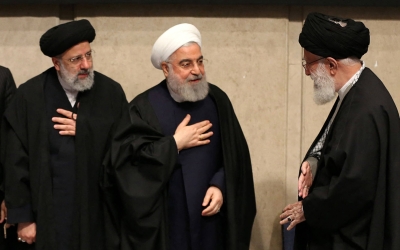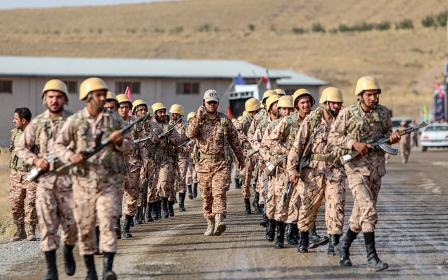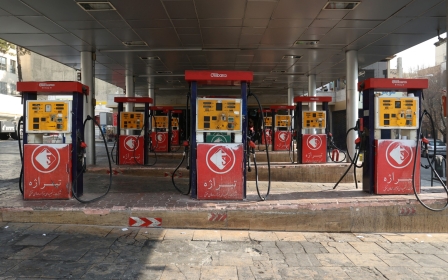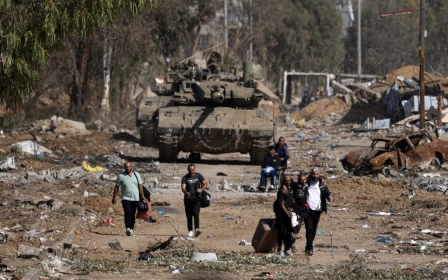Iranian press review: Iranians question Russia ties after Israel killed key commander in Syria
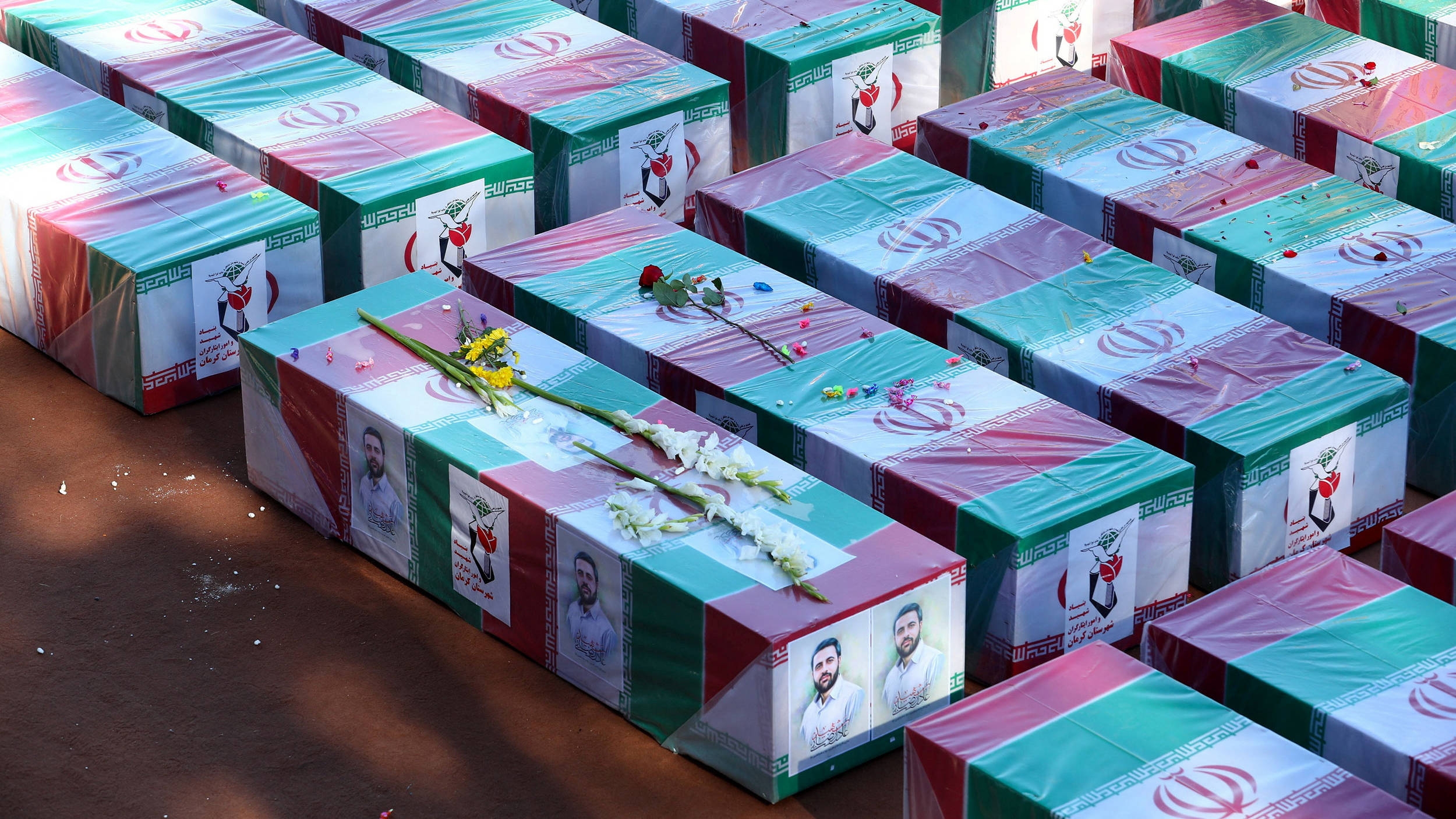
Israeli Syria attack clouds Russia-Iran ties
An Israeli missile attack that killed a senior commander of Iran's Islamic Revolutionary Guard Corps (IRGC) Quds Force in Syria last week has sparked criticism of the military partnership between Russia and Iran.
On 25 December, Seyyed Reza Mousavi, a key figure in shaping Iran's military presence in Syria, was killed in a missile strike on his residence in the Zainabiyah neighbourhood of Damascus.
Although it wasn't the first time that Israel had targeted Iranian forces in Syria, this incident has drawn attention to Russia's failure to deploy its advanced S-300 anti-missile defence system in support of Iran, its primary ally in the region.
Iranian columnist Jafar Gholabi, in a recent piece, questioned Russia's stance on defending Iranian forces and its silence on Israel's attacks.
New MEE newsletter: Jerusalem Dispatch
Sign up to get the latest insights and analysis on Israel-Palestine, alongside Turkey Unpacked and other MEE newsletters
He wrote: "Why doesn't the Russian government use its advanced S-300 system to protect Iranian advisers in Syria? Why not even condemn those attacks?"
Gholabi also raised concerns about Russia's apparent lack of action against Israeli and American air forces.
'Why doesn't the Russian government use its advanced S-300 system to protect Iranian advisers in Syria? Why not even condemn those attacks?'
- Jafar Gholabi
"No government or group, aside from the Israeli and American air forces, possesses the ability and motivation to conduct air operations against the Syrian government," he said.
Some Iranian military experts also criticised Iran's approach to Israel, linking Mousavi's assassination to Iran's perceived silence over previous Israeli attacks on its soldiers in Syria.
Saber Golanbari, an analyst with conservative ties, argued that Israel refrains from targeting leaders of the Hezbollah movement in Lebanon and the Houthis in Yemen because of what he described as "the balance of terror".
Golanbari said this balance has not yet been established between Iran and Israel, leaving Tel Aviv with a free hand.
"In such a situation, Israel sees an opportunity to present the assassination of an Iranian commander as a significant achievement and victory," he concluded.
Iran blames Israel for Kerman blasts
In the aftermath of two explosions in the city of Kerman on 3 January, Iranian officials pointed fingers at Israel for the blasts, vowing to retaliate against what they deemed a terrorist attack.
More than 103 people were killed and 188 wounded in the attack, which took place during a ceremony commemorating the assassination of former Iranian commander Qassem Soleimani.
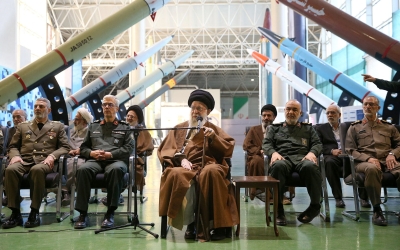
According to officials, the majority of the casualties occurred during the second explosion as citizens and medical teams hurried to assist the victims of the first blast.
Former Islamic Revolutionary Guard Corps (IRGC) commander Mohsen Rezaei took to social media, suggesting Iran's response should lead to the downfall of Israel.
"The legacy of Qassem [Soleimani]'s global resistance goes beyond mere revenge. Our aim is not blind retaliation, harming civilians, but the ultimate end of Israel and Zionism worldwide," he said.
Mohammad Mokhbar, the first vice president and a fundamentalist politician, also blamed Israel for the terrorist act. In a statement, he condemned the loss of innocent lives and pledged that those supporting "terrorist groups" would face consequences for their actions.
The Islamic State group on Thursday claimed responsibility for the attack.
These developments follow a surge in attacks attributed to Israel in the region, including the killing of a senior IRGC commander in Syria and the assassination of a Hamas's deputy political leader, Saleh al-Arouri, in Lebanon.
Public backlash over soaring internet prices
An increase in internet prices in Iran has sparked widespread discontent, drawing criticism from conservative voices supporting President Ebrahim Raisi and from reformists opposing his restrictive internet policies.
A 30 percent increase in internet prices was officially announced on 28 December, and many Iranians pointed out that Raisi had pledged during his election campaign that they would not be raised.
On Saturday, the reformist newspaper Arman Melli criticised the government's decision, emphasising its potential impact on the lives of the low-income population.
The daily quoted Mohammad Javad Azari Jahormi, a former communication minister, who expressed concern that the higher internet prices would result in "a decrease in technology usage, especially among the disadvantaged, leading to a widening digital divide and increased injustice, contributing to heightened social dissatisfaction".
Jalal Rashidi Kochi, a representative of Iran's parliament known for his fundamentalist stance, took to social media to sarcastically comment on the situation.
He wrote: "On the eve of the [parliamentary] elections, I congratulate the 30 percent increase in (the blocked) internet tariffs to all those who seek to increase [social] dissatisfaction and decrease participation [in the elections]. I also sincerely thank the efforts of all the dear ones who supported the nation and strongly opposed the 100 percent tariff increase."
Parliamentary elections are scheduled for 1 March.
The Fararu news site highlighted the issue of the filtering of various sites and messaging platforms, such as WhatsApp and Instagram, which have remained restricted since nationwide protests in 2022.
Fararu pointed out that "the increase in mobile internet package prices, coupled with restrictions on global social networks, has created additional challenges for users, who must now pay extra money for tools to bypass filtering".
Iranian press review is a digest of news reports not independently verified by Middle East Eye
Middle East Eye delivers independent and unrivalled coverage and analysis of the Middle East, North Africa and beyond. To learn more about republishing this content and the associated fees, please fill out this form. More about MEE can be found here.


